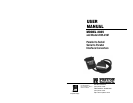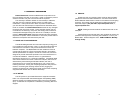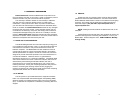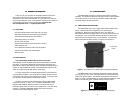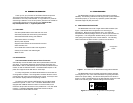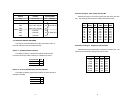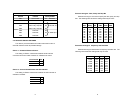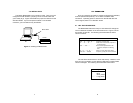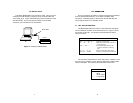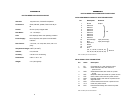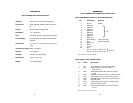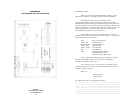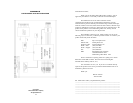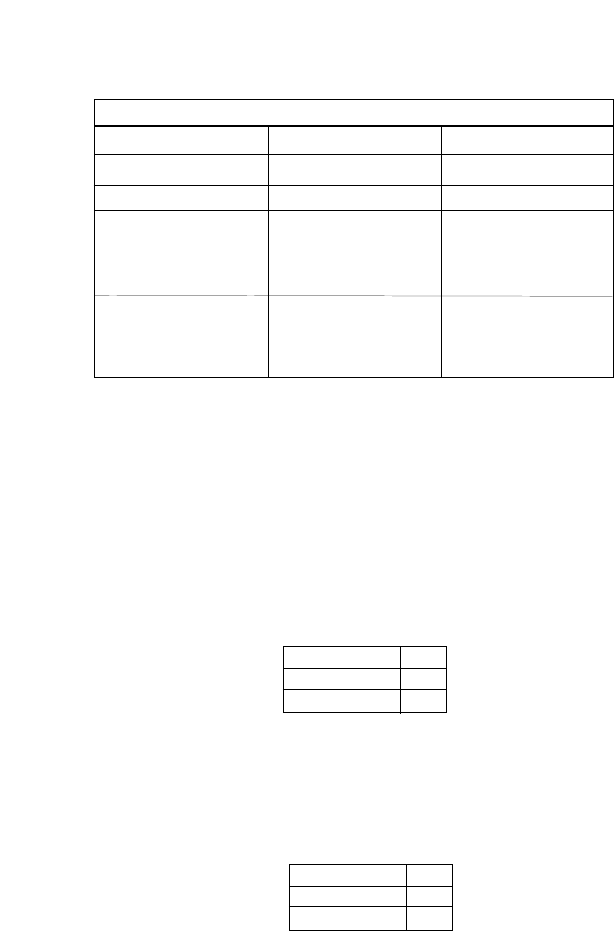
3.2 DETAILED SWITCH SETTINGS
This section provides detailed information about the function of
each DIP switch and lists all possible settings.
Switch 1: Hardware/Software Control
The setting for Switch 1 determines whether these interface
converters will control either hardware or software flow control.
Switch 2: Used to Enable/Disable the LED Indicator
The setting for Switch 2 determines whether the LED indicator is
enabled or disabled.
5
Switch 3 through 5: Data, Parity and Stop Bit
Switches 3 through 5 are used to specify the data, parity and stop
bits. The following table shows the settings that may be used:
Switches 6 through 8: Frequency and Data Rate
Switches 6 through 8 determine the frequency and data rate. The
following chart shows the settings that may be used.
6
1,200 OFF OFF ON
2,400 ON OFF ON
4,800 ON ON OFF
9,600 OFF ON ON
19,200 ON ON ON
38,400 OFF OFF OFF
57,600 ON OFF OFF
115,200 OFF ON OFF
Data Rate SW6 SW7 SW8
Flow Control SW1
Hardware OFF
Software ON
LED SW2
Enabled ON
Disabled OFF
7B EP 1S ON ON ON
7B OP 1S OFF ON ON
7B NP 2S ON OFF ON
7B EP 2S OFF OFF ON
7B OP 2S ON ON OFF
8B EP 1S OFF ON OFF
8B OP 1S ON OFF OFF
8B NP 1S OFF OFF OFF
Stop
Data Parity Bit SW3 SW4 SW5
DIP SWITCH SUMMARY TABLE
Position Function Factory Default
SW1 Flow Control Off
SW2 LED Indicator On
SW3 Data, Parity, Stop Bits Off
SW4 Data, Parity, Stop Bits Off
SW5 Data, Parity, Stop Bits Off
SW6 Data Rate Off
SW7 Data Rate Off
SW8 Data Rate Off
Hardware
Enabled
8B, NP, 1S
38400 bps
}
}



